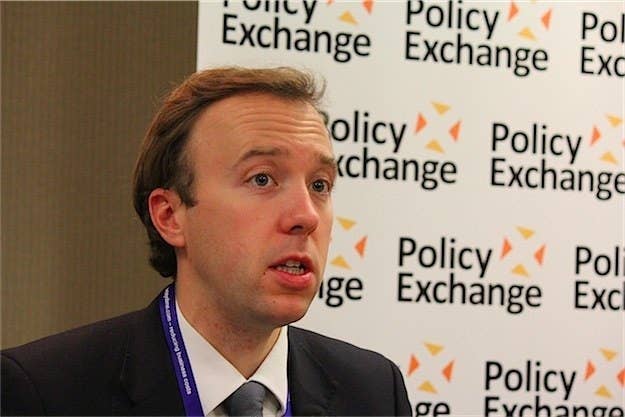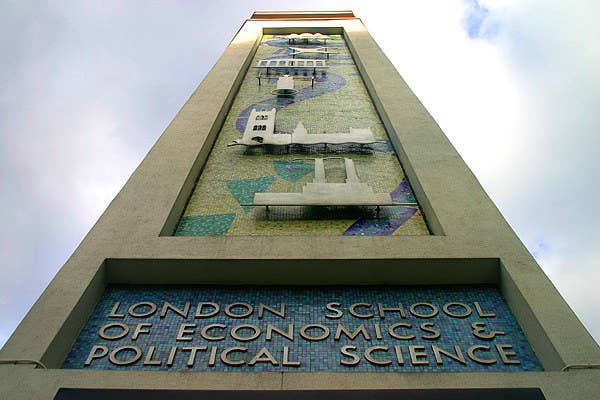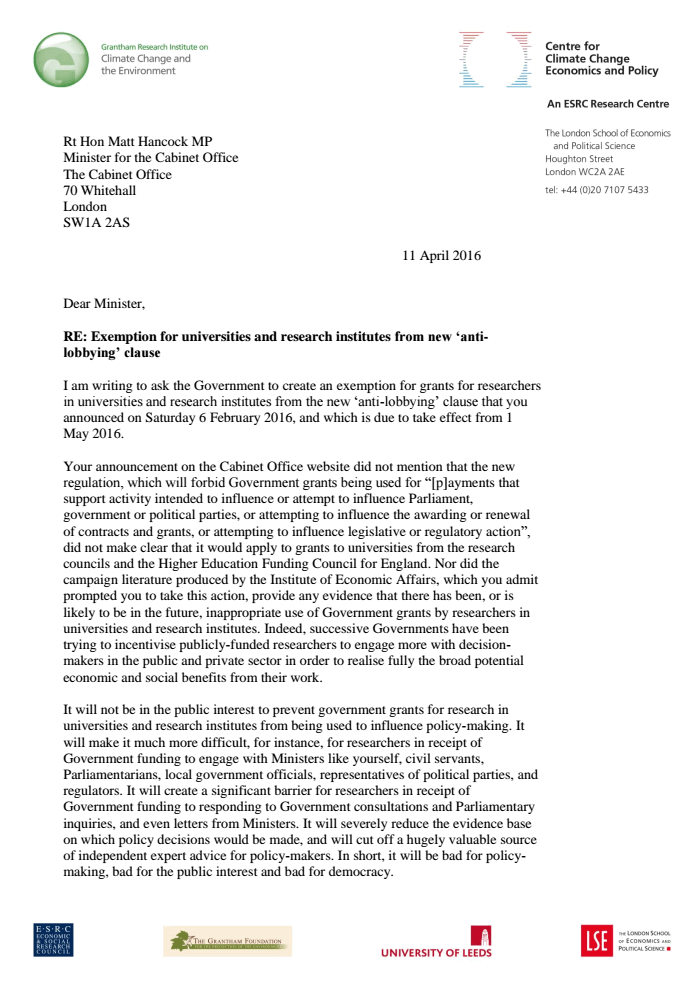
The government has been warned it risks silencing researchers in universities due to the unintended effects of a controversial “anti-lobbying” clause that will be inserted into grant arrangements from May.
A letter was sent to the government by a research centre at the LSE this week warning of the clause’s effects, while BuzzFeed News understands that so much concern has been expressed by the higher education and research community that Universities UK, the leading advocacy organisation for universities in the United Kingdom, has been forced to enter into talks with government officials on its behalf.
Pressure on the government from the higher education sector has been mounting since last month when the Royal Society of Edinburgh urged the government to suspend the clause and enter into an “open consultation” on the issue, saying it, “could affect cross border charities and Scottish Universities and Research Institutes that receive funding from the UK Research Councils.”
The clause, announced in February, was supposed to prohibit organisations – primarily charities – using taxpayer-funded grants to lobby the government or parliament. However, charities have told BuzzFeed News that it is an ideological attack on a problem that “doesn’t exist” and will actually cost the government money in the long run.
Bob Ward, the policy and communications director at the Grantham Research Institute on Climate Change and the Environment at the London School of Economics, has sent a letter to Matt Hancock MP, the Minister for the Cabinet Office, after an official petition he launched calling for an exemption for researchers and universities reached 10,000 signatures, consequently requiring a response from the Government.

Ward told BuzzFeed News: “This draconian ‘anti-lobbying clause’ will ban researchers from using Government grants to influence policy. It will stop academics from using their public funding to inform and advise Ministers, Parliamentarians, civil servants, regulators and local councillors.
“This extreme restriction on academic freedom will be bad for policy-making, bad for the public interest and bad for democracy. The Government should announce, without delay, an exemption from the clause for grants to researchers in universities and research institutes.”
In the letter, he calls for universities and research institutes to be made exempt from the clause and writes: “It will not be in the public interest to prevent government grants for research in universities and research institutes from being used to influence policy-making.
He adds: “It will make it much more difficult, for instance, for researchers in receipt of Government funding to engage with Ministers like yourself, civil servants, Parliamentarians, local government officials, representatives of political parties, and regulators.”
The Cabinet Office, the department responsible, has already been told by the Commons science and technology committee that the clause could make academics unwilling to take up advisory positions in government. Sarah Wollaston, the chair of the select committee, has also said it could have serious consequences for public health.
Ending charities ability to lobby ministers wld have serious consequences for #publichealth Balance already distorted in favour of industry
The Cabinet Office is understood to be facing pressure behind the scenes from a number of educational bodies. As well as Universities UK, BuzzFeed News has contacted the Royal Society and a number of institutions within the Russell Group of Universities, but all declined to comment on the clause.
Questions have also been raised raised about the process by which the policy was formed. In its press release on the clause, the Cabinet Office wrote: “The Institute of Economic Affairs [IEA] has undertaken extensive research on so-called ‘sock puppets’, exposing the practice of taxpayers’ money given to pressure groups being diverted to fund lobbying rather than the good causes or public services.”
Weeks before announcing the clause Matt Hancock, the government minister responsible for it, accepted a £4,000 donation from Neil Record, the chairman of the IEA, a right-wing think tank which is known to have received funding from the tobacco industry.
There is no suggestion that the donation broke any rules or was not properly declared, and the IEA told the Independent it had “no record” of any of its staff or trustees ever meeting Hancock to discuss the research into the clause, for which it was reportedly paid £15,000 by an anonymous individual.

The question of exactly how “extensive” the IEA’s research was has also been called into question by Andrew Purkis, a Trustee of the charity Action Aid. He has reported the IEA to the charity regulator, the Charity Commission, alleging that despite being registered as a charity itself, it is not carrying out any charitable activity.
When BuzzFeed News contacted the IEA about the complaint last month, a spokesperson said: “As a small organisation, we try to take every opportunity to impact public debate through reaching policymakers, opinion-formers, academics, students and the wider public. We however do this without a penny of taxpayers’ money.”
The also said “charities are misinterpreting - wilfully or otherwise - the changes to government grants, claiming that the new clause will ‘prohibit organisations in receipt of grant funding from influencing government or parliament’. This is simply not true.”
However, Charlotte Ravenscroft, head of policy at the National Council for Voluntary Organisations, told BuzzFeed News: “It's totally counterproductive for government to ban charity or scientific experts from explaining the findings of their grant-funded projects to MPs. Really, it would be far better to actively encourage them to make recommendations that could help to improve government policy or public services.
“This was a scheme announced with no attempt to think about what it would mean in the real world. It's absolutely not in the public interest to deter charities and researchers from sharing their insights and expertise with government. It's time for the government to take another look at it now and show that they value the advice of experts.”
A Cabinet Office spokesperson said: "The Government is taking steps through this clause to ensure tax-payer funds are not misused. We are working with stakeholders to determine how this might apply to the research base.”
Read Bob Ward’s letter here:

